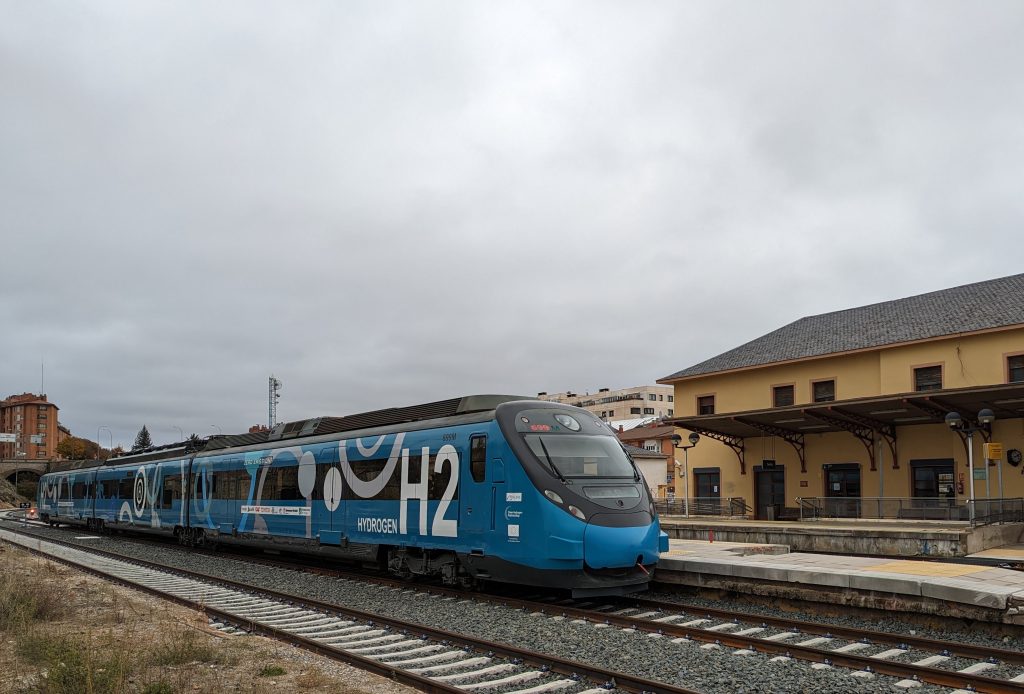 The FCH2RAIL project has begun tests on the Torralba – Soria line marking a new milestone in the prototype hydrogen-electric train project that is committed to new environmentally friendly mobility solutions.
The FCH2RAIL project has begun tests on the Torralba – Soria line marking a new milestone in the prototype hydrogen-electric train project that is committed to new environmentally friendly mobility solutions.
The main objective of the new tests in the Soria line is to evaluate the performances of the bi-mode fuel cell hybrid train in the new line, increasing the range of power and energy demand conditions and simulating different commercial services.
The hydrogen-electric train of the FCH2Rail project represents an innovative solution that combines the efficiency of fuel cells with battery storage and allows running with catenary on electrified sections, allowing for more efficient use of energy and greater autonomy. Moreover, this technology promises a zero emissions product with competitive operating performances compared to traditional diesel propulsion systems.
The testing on the Spanish rail network was launched in May on the rail section between Zaragoza and Canfranc, where the prototype train has proven its potential, reliability and efficiency. The project is in a crucial stage of on-track testing demonstrating the reliability of the vehicle and the new technology and marking a significant step towards creating a cleaner and more sustainable rail transport system.
These tests are the result of the joint work of the companies collaborating in the project. Adif, as infrastructure administrator, issued a new order at the time that allows the new hydrogen technology to circulate in tests through the Spanish infrastructure. Renfe Operadora provides the train and drivers and CAF is carrying out the transformation of the Civia 463 demonstrator train and leads all the tests carried out. The project also has the participation of the German Aerospace Institute (DLR), Toyota, the National Hydrogen Center (CNH2), Infrastructure of Portugal (IP) and Stemmann Technik (STT),
The project started in early 2021 and is scheduled to be completed by the end of 2024. It has a budget of EUR 14 million, of which EUR 10 million is provided by the Clean Hydrogen Partnership – the successor of the Fuel Cells and Hydrogen 2 Joint Undertaking (FCH 2 JU).
Share on:



